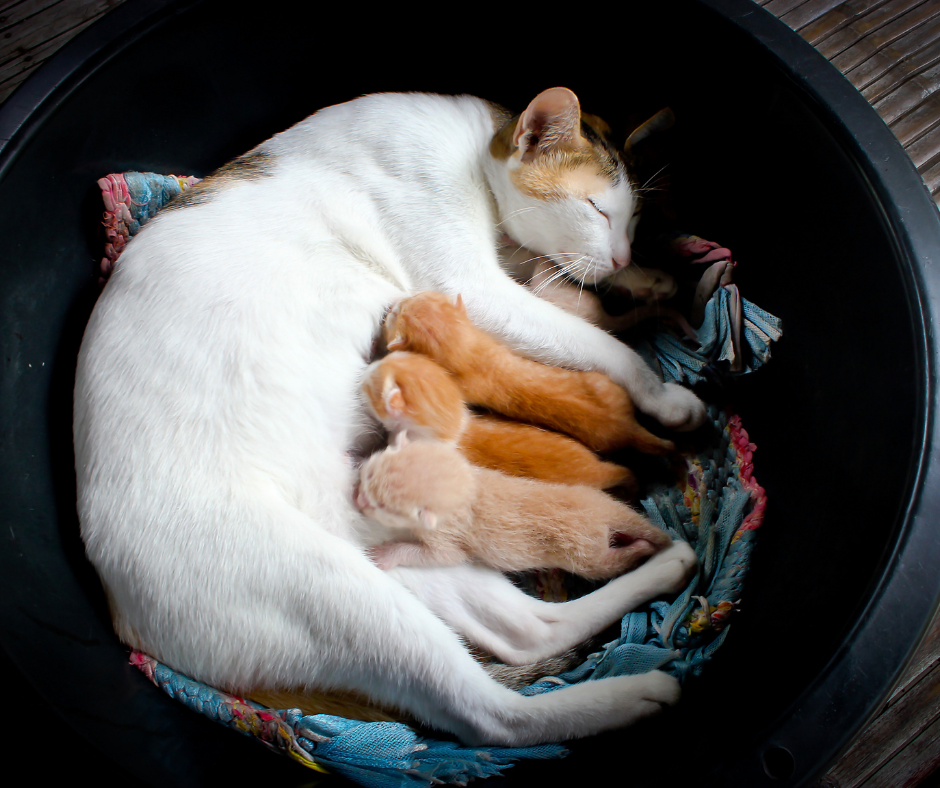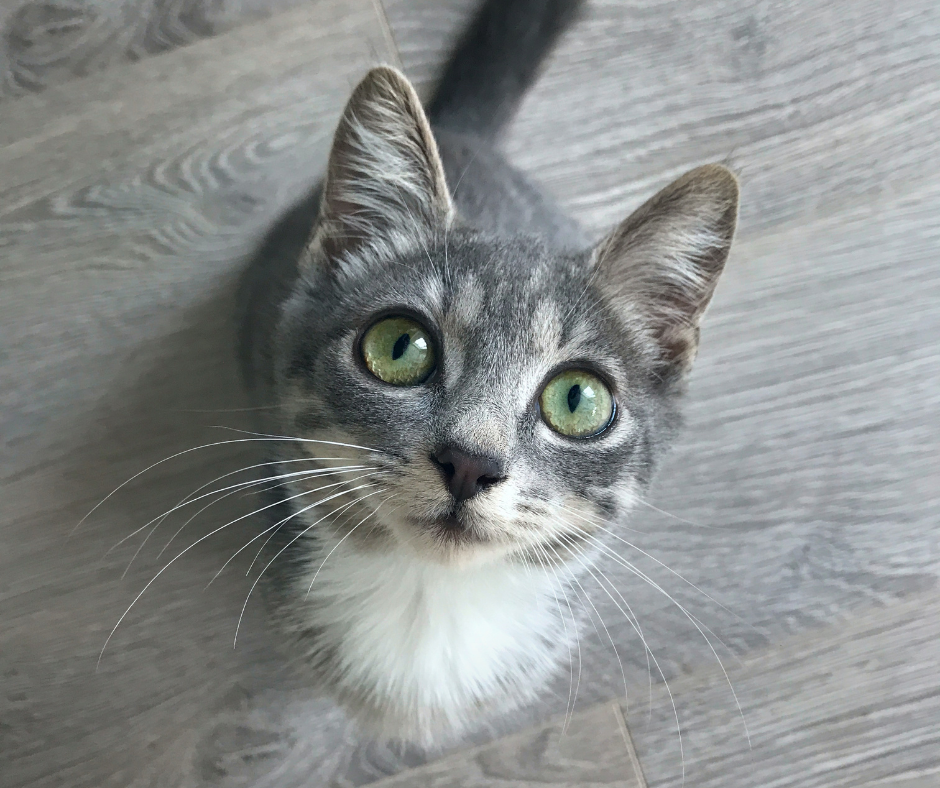Kittens grow from a tiny newborn that could fit into the palm of your hand to a fully independent curtain-climbing bundle of mischief in a matter of weeks. In this article we will take a look at kitten development stages from birth through to adulthood.
Kitten development by week
- Week 1 – born with closed eyes and folded ears, kittens are completely dependent on their mum. She tends to their every need from providing warmth and safety to feeding them and helping them go to the toilet. They can mew to get her attention and use smell and touch to find her and get the milk they need to grow. They can move by crawling on their tummies.
- Week 2 – their eyes start to open and their ears begin to unfold revealing a whole new world of sight and sound.
- Week 3 – eye colour may start to change and they are looking more kitten-like each day. They are learning to purr and are beginning to walk.
- Week 4-5 – they are now able to go to the toilet without help from mum and may start to use a litter tray. Weaning will begin with some nutrients coming from solid food.
- Week 6-8 – they are rapidly becoming more independent and sociable. They play a lot and are getting ready to face the big wide world! Growth and development slow down a little and they will soon be ready to leave mum.
- Week 12 – kittens are now fully weaned. Socialising is really important at this stage so that they grow up to be happy well-adjusted cats.
- Week 16 – kittens will start to reach sexual maturity from now so this is a good time to contact your vet to discuss neutering
- Week 52 – your kitten is now a fully fledged adult feline!

Are kittens born with worms?
Did you know that the cute balls of fluff snuggled up next to their mum may already be home to some unwanted guests? Hidden away in their growing bodies may lurk the spaghetti-like roundworm, or Toxocara cati to give it its scientific name. These cute kitties haven’t been anywhere to pick up worms so how does this happen? The simple answer is that their mum is the source. Adult cats can become infected with roundworm either by coming into contact with infected faeces or by munching on a tasty rodent when out hunting. Roundworm larvae can travel through adult cats’ bodies and become dormant in cysts. The hormonal changes associated with pregnancy enable the larvae to wake up and travel across the placenta to the developing kittens. Kittens can also become infected via their mother’s milk soon after birth. So how do we get rid of these pesky parasites? If your cat falls pregnant, make sure to worm her during the later stages of pregnancy. It’s best to consult a veterinary surgeon for advice to make sure that you use a product that is safe in pregnancy. You should then follow this up by worming the kittens regularly from 2 weeks of age with a kitten-safe product.
Are kittens born with teeth?
Kittens are usually born without any visible teeth. Milk teeth will start to appear during the second week of life and by week 8 they will have a full set of 26. Like humans, these will become wobbly and fall out as adolescence approaches; you may see the tiny teeth round your house, but more often than not your kitten will swallow them and they will pass harmlessly out in their faeces. The permanent teeth start to come through at 4 months of age and by 7 months your kitty should have 30 brand new gnashers.
Are kittens born with fur?
Kittens make their entrance into the world with a full coat of silky soft kitten fur. Soon after they are born, mum will give them a thorough groom. This helps to dry their coat and reduces the risk of these tiny fluffballs getting cold.

How often should kittens eat?
Newborn kittens have a milk bar on tap. They tend to feed little and often, spending the rest of their time sleeping. From 4 to 5 weeks old they should be introduced to solid food in small amounts throughout the day. Initially this will need to be mashed up and will be a messy business with as much food on their tiny paws as in their mouths! By the age of 8 weeks, they will have fully mastered all the skills needed to eat solid food, but their small tummies mean that 4 meals a day is best. By 12 weeks this can be reduced to 3 meals a day and by 6 months, 2 is sufficient.
What age do kittens stop growing?
Kittens grow at an astonishing rate, especially in the first couple of months when their body weight can increase ten-fold. Rate of growth gradually slows over subsequent months and by the time your cute kitten is a year old they will have reached their full adult size.
When do kittens leave their mother?
The best place for very young kittens is with their mum. Some kittens move to their forever homes at 8 weeks old but if they can wait a little longer this may be better. 12 weeks of age is ideal as they are fully ready for all the new experiences life has to offer. Their immunity has a good supply of antibodies from mum’s milk, they are less likely to suffer with upset tummies and they have benefitted from 12 weeks of being taught how to behave!
Welcoming a new kitten to the family soon? Take a look at our checklist to make sure you’ve got everything you need to get started!


